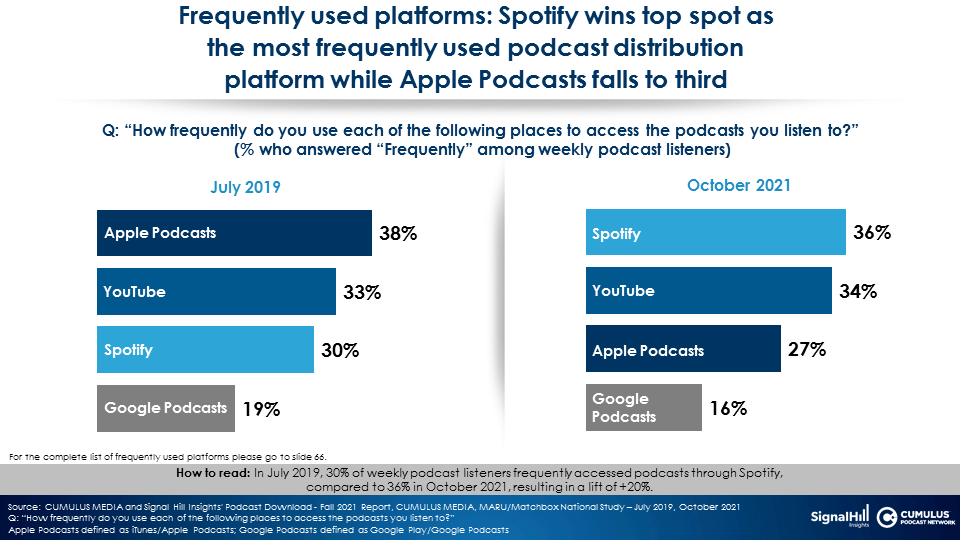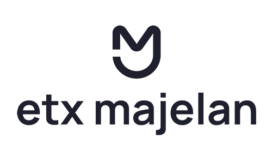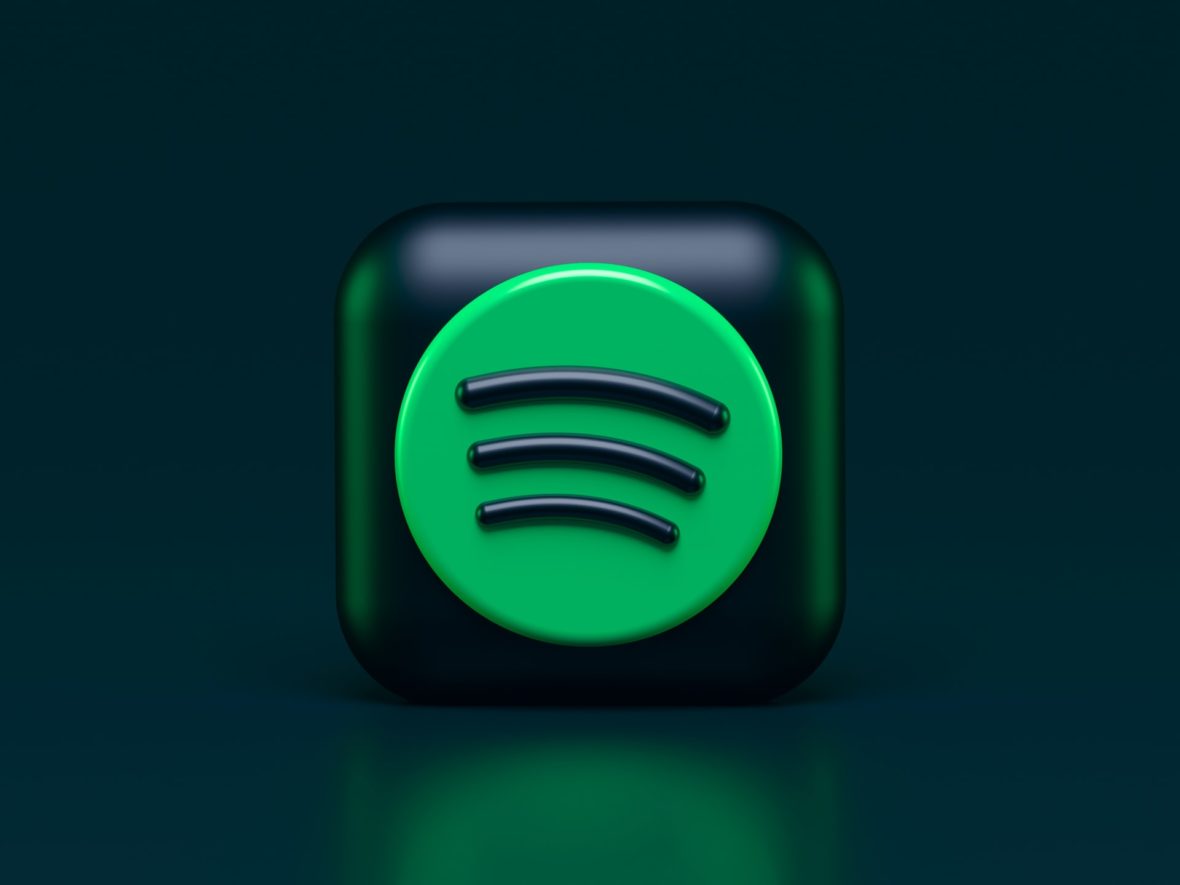In 2019, Spotify announced its ambition to become the world’s leading audio platform by tackling the podcast market. At the time, it acquired Anchor and Gimlet, two companies specializing in the production of audio programs and the creation, distribution and monetization of podcasts. In the same year, Spotify also brought in Parcast and The Ringer, two major american podcast studios.
This year, Spotify has reaffirmed this objective by continuing its expansion into various audio sectors and by multiplying the technological optimization projects of its platform, notably with the acquisition of Podz, a start-up specialized in the generation of high quality podcast excerpts which aims to promote the discovery of this audio format.
Enrichment through automatic transcription
In May 2021, Spotify launched a new feature, podcast transcripts in subtitles. Transcripts are automatically generated on the platform, with the ability to scroll and select a phrase to read the episode from a specific point in time. The other two accessibility changes carried by this feature are:
- adjustments and additions to the icons in the app aimed at improving the experience of people with hearing disabilities ;
- greater variability in text scaling.
Spotify is one of the first podcast apps to include automated transcription. It gives listeners the ability to select a specific segment, thus increasing the number of listens on a podcast. By adding this feature, Spotify has decided to target an audience that is more accustomed to text-based content, often older, which increases the reach of its podcasts.
From radio to podcast with Whooshkaa
In December 2021, Spotify announced the acquisition of Whooshkaa, a platform created in Australia that enables the hosting, editing and distribution of audio content. It also allows for the promotion, monetization and measurement of broadcast podcasts.
For Spotify, the goal is to make it easy for broadcasters to turn their existing radio content into podcasts. This broadcast-to-podcast technology will make content directly available in Megaphone (acquired by Spotify in November 2020), which already offers a series of hosting, distribution, reporting and monetization tools for podcasters.
Podcast monetization
The Swedish firm has launched the monetization of podcasts in 30 countries and deployed it on November 22, 2021 in France. Any producer of podcasts, private or professional, can therefore set up a subscription offer to its content from € 1.99 per month. Spotify premium subscribers pay a little more to limit ads within monetized content.
After its numerous investments in podcasts over the past two years, Spotify intends to make this strategic move profitable, even if the commission on each payment will not be start until 2023. It will then increase to 5%.
The acquisition of Findaway, specialized in audiobooks
“We’re excited to partner with the Findaway team, and to combine its cutting-edge technology and strong audiobook catalog with Spotify’s expertise to revolutionize the audiobook sector as we have done with music and podcasts,” said Gustav Söderström, Spotify’s director of research and development. The acquisition of Findaway, a major player in the audiobook industry since 2005 that provides content to Audible (Amazon) and Apple, is expected to be finalized later this year. It’s another investment that solidifies Spotify’s promise to become the platform that centralizes all audio formats. Spotify already offered audiobooks on its platform and had made the first volume of Harry Potter, narrated by Daniel Radcliffe himself, available to its users for free.
The question is: did all of Spotify’s expansion efforts pay off this year? According to a study by Cumulus Media And Signal Hill Insights, Spotify finally dethroned Apple (which moves into 3rd place after Youtube) in podcast listening. In fact, from 2019 to 2021, frequent use of Spotify to listen to podcasts jumped from 30% to 36%.

By investing heavily in the podcast market, Spotify has managed to diversify its offer and attract an audience that was looking for other content than just music. It is therefore a great success when it comes to podcasts. We’ll have to wait until next year to see the results of Spotify’s evolution in the audio book sector.
Read all about the latest global audio market news in our bi-monthly newsletter and on our blog. Subscribe for free to the ETX RevoluSOUND Observatory.



